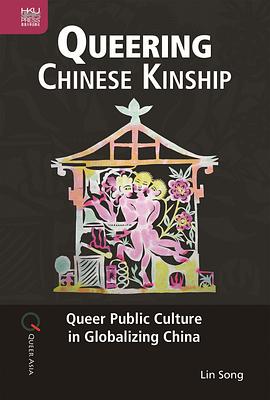Queering Chinese Kinship
豆瓣
Queer Public Culture in Globalizing China
酷兒中國親屬關係:全球化中國的酷兒公共文化
Lin Song
简介
What does it mean to be queer in a Confucian society in which kinship roles, ties, and ideologies are of such great importance? This book makes sense of queer cultures in China—a country with one of the largest queer populations in the world—and offers an alternative to Euro-American blueprints of queer individual identity. This book contends that kinship relations must be understood as central to any expression of queer selfhood and culture in contemporary cultural production in China. Using a critical approach—“queering Chinese kinship”—Lin Song scrutinizes the relationship between queerness and family relations, and questions Eurocentric queer culture’s frequent assumption of the separation of queerness from blood family.
Offering five case studies of queer representations across a range of media genres, this book also challenges the tendency in current scholarship on Chinese and East Asian queerness to understand queer cultures as predominantly counter-mainstream, marginal, and underground. Shedding light on the representations of queerness and kinship in independent and subcultural as well as commercial and popular cultural products, the book presents a more comprehensive picture of queerness and kinship in flux and highlights queer politics as an integral part of contemporary Chinese public culture.
contents
List of Illustrations viii
Acknowledgments ix
Guide to Romanization xi
1. Introduction: Queering Chinese Kinship 1
Part I: Cinematic Cultures
2. Going Public: The Familial and the Political in New Chinese
Documentaries 31
3. Localizing the Transnational: Spring Fever as a Queer Sinophone Film 50
Part II: Popular Cultures
4. Entertainingly Queer? Illiberal Homonormativity and Transcultural
Queer Politics in Q Dadao 73
5. Coming Out as Celebrities and Fans: Digital Self-Making, Carnivalesque
Consumption, and Queer Vloggers on Bilibili 91
6. Rerouting Queerness: Qipa Shuo in the Rise of Chinese Online Video 110
7. Closing Remarks 126
Filmography 137
References 139
Index 156